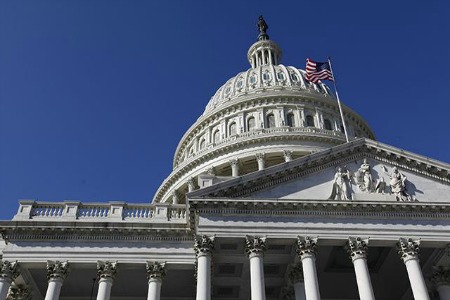
Washington (CNN) — Sometime in the next 10 days, a fiscal cliff agreement is likely.
It almost certainly won’t be the grand bargain sought by President Barack Obama and House Speaker John Boehner that addresses the nation’s chronic federal deficits and debt.
It may not happen before January 1, the trigger date for the automatic tax increases on everyone and deep spending cuts of the fiscal cliff.
When it does occur, a deal will likely be similar to proposals rejected by Republicans during similar brinksmanship efforts of the past two years.
“It’s all about scoring political points,” GOP Rep. Ileana Ros-Lehtinen complained Wednesday on CNN, referring to both sides in the debate. “I know the American people are tired of all of us.”
Obama is heading back to Washington on Wednesday night from his Hawaiian vacation, leaving behind the first family, to be ready if the Senate comes up with a plan when it returns Thursday from its own Christmas break.
Meanwhile, House Republican leaders held a conference call Wednesday afternoon but made no decision about when to bring their members back to Washington, according to a GOP source on the call. Members were told last week they would receive 48 hours’ notice if they needed to return after Christmas.
The principal dispute continues to be over taxes, specifically the demand by Obama and Democrats to extend most of the tax cuts passed under President George W. Bush while allowing higher rates of the 1990s to return on top income brackets.
Obama campaigned for re-election on keeping the current lower tax rates on family income up to $250,000, which he argues would protect 98% of Americans and 97% of small businesses from rates that increase on income above that level.
Republicans oppose any kind of increase in tax rates, and Boehner suffered the political indignity last week of offering a compromise — a $1 million threshold for the higher rates to kick in — that his colleagues refused to support because it raised taxes and had no chance of passing the Democrat-controlled Senate.
Rep. Nan Hayworth, R-New York, acknowledged Wednesday that a deal will have to include some form of higher rates on top income brackets, but she said her party would fight to make it as minimal as possible.
“If that’s where people have to go, we’ll make the threshold as high as we can,” Hayworth said on CNN, arguing that higher taxes in any form burden economic growth. “Because the more relief we provide, the better off we’ll be.”
Hayworth also made clear that a limited agreement was the most to expect for now, saying: “I don’t think we’re going to get the big plan in the next six days.”
A statement Wednesday by Boehner’s leadership team said the Democratic-controlled Senate must act first on proposals already passed by the House but rejected by Senate leaders and Obama.
“If the Senate will not approve and send them to the president to be signed into law in their current form, they must be amended and returned to the House,” the leadership statement said. “Once this has occurred, the House will then consider whether to accept the bills as amended, or to send them back to the Senate with additional amendments. The House will take this action on whatever the Senate can pass, but the Senate first must act.”
Obama and Democrats have leverage, based on the president’s re-election last month and Democratic gains in the House and Senate in the new Congress that will convene in January. In addition, polls consistently show majority support for Obama’s position on taxes.
Economists warn that failure to avoid the fiscal cliff could bring a recession, and stocks have been down since the middle of last week, when apparent progress in the talks suddenly unraveled with Boehner proposing his own “Plan B” that was rejected by fellow House Republicans.
Click Here to read more
https://www.cnn.com/2012/12/26/politics/fiscal-cliff/index.html?hpt=hp_inthenews